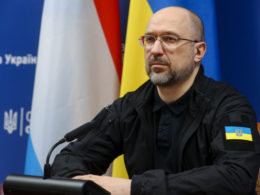The World Bank announced today the disbursement of an additional $500 million to help Ukraine meet urgent spending needs created by the Russian invasion. The IBRD financing is supported by $500 million in loan guarantees from the United Kingdom, announced September 30, 2022, and was mobilized under the Public Expenditures for Administrative Capacity Endurance in Ukraine (PEACE) Project, which supports continued government capacity, including the provision of core public services such as health, education, pensions, and social protection.
“The Russian invasion continues to cause massive destruction of Ukraine’s infrastructure – including water, sanitation, and electricity networks – just as winter is approaching, further endangering Ukrainian people,” said World Bank Group President David Malpass. “The new portion of financing disbursed today will be used to maintain essential government services. We stand firmly to support the Ukrainian people as they face this unparalleled crisis.”
To date, the World Bank has mobilized $13 billion in emergency financing for Ukraine, including commitments and pledges from donors, of which $11.4 billion has been fully disbursed. The assistance has allowed Ukraine to continue providing essential government services to the population and helped ease the impacts of the widespread human and economic losses caused by the war.
In September, the World Bank, the Government of Ukraine, and the European Commission released an analysis of Ukraine’s reconstruction and recovery needs, the Rapid Damage and Needs Assessment (RDNA), which estimates the total cost to be $349 billion as of 1 June 2022. This figure is growing as the war continues.
According to the World Bank’s recent economic update, Ukraine’s economy is projected to contract by 35% this year. We also expect the number of people living in poverty in Ukraine to rise to around 25% by the end of this year – compared to just 2% prior to the invasion.



